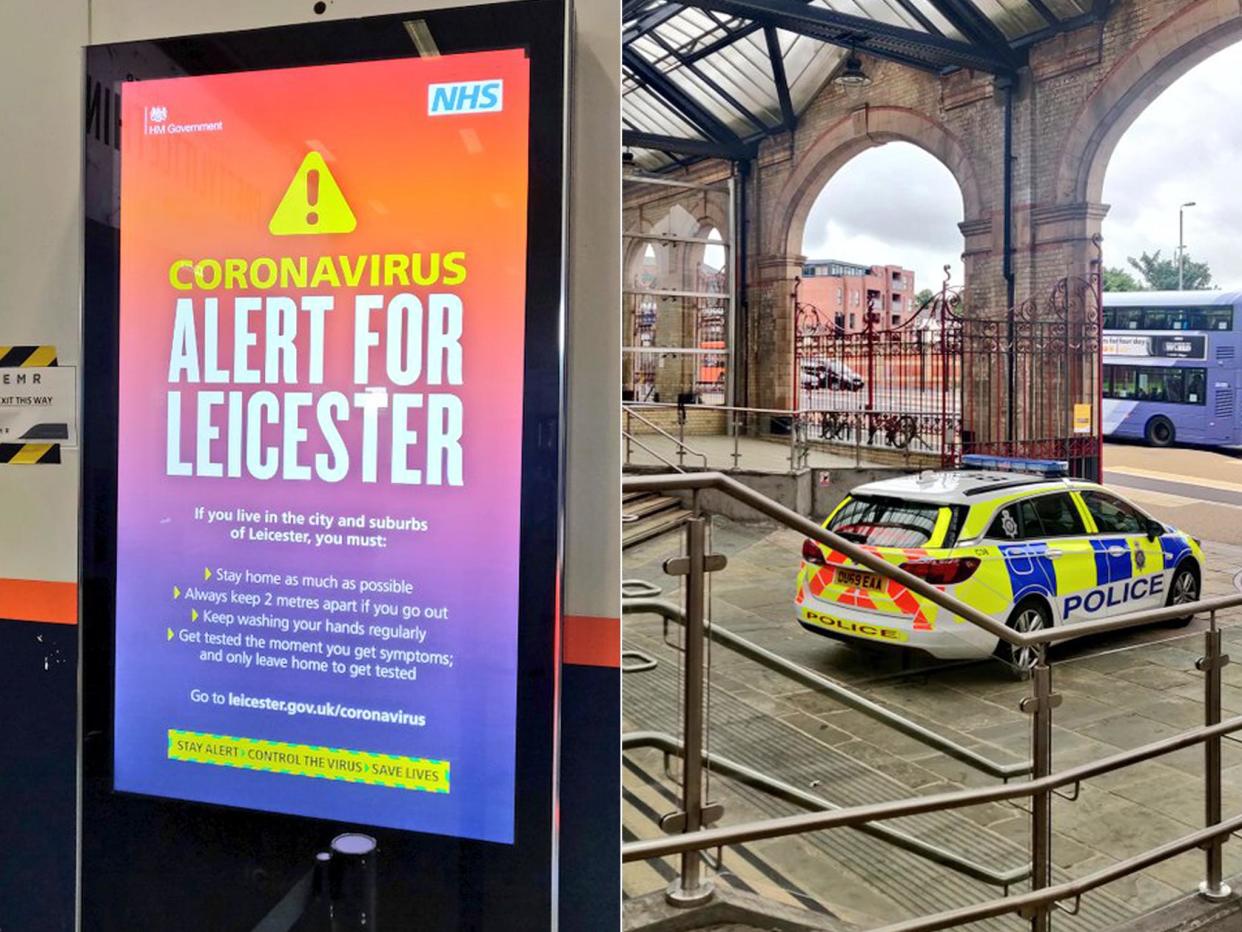Leicester lockdown: Police warn of ‘confusion’ over differences between law and government guidance

Official police guidance has warned of “confusion” over the Leicester lockdown and gaps between the law and government instructions.
While pubs and hotels have reopened across England on Saturday, non-essential businesses have been forced to shut down because of a rise in coronavirus infections.
Relaxed laws for the rest of the country now allow people to gather in groups of up to 30 without a risk assessment, but in Leicester the limit is set at six outdoors and two indoors.
The law is less strict than government guidance, which calls on the city’s residents to only leave home for work or essential reasons.
A document published by the College of Policing said the UK’s first local lockdown presented a “unique policing situation”.
“It is likely that there may be some local confusion between the Health Protection Regulations pertaining to the rest of England and government guidance,” it said.
“Government guidance is not enforceable. There are no specific restrictions on travel in and out of Leicester at this time.”
Gaps between coronavirus laws and government guidance were linked to a string of miscarriages of justice at the start of the UK’s lockdown.
In April, parliament’s Joint Committee on Human Rights warned that people were being “punished without any legal basis”.
Weeks later, the Home Affairs Committee raised concerns that police were “overstepping” their powers and “enforcing government advice rather than the letter of the law”.
The Health Protection Regulations currently in force for Leicester ban residents from staying overnight elsewhere “without reasonable excuse”, or having people from outside Leicester to stay with them.
But there is no legal restriction on people leaving their homes or Leicester without “reasonable excuse”.
“Linked households” including single parents or people who live alone are exempt from the restrictions.
Other exceptions listed in the regulations include going to a funeral, escaping the risk of harm, providing care to vulnerable people or visiting loved ones who are either giving birth or dying.
Police guidance states that the lengthy list of reasonable excuses is “not exhaustive”, adding: “Officers should use their discretion to determine what may be reasonable in the circumstances with which they are presented.”
The document says that officers should engage with people and “encourage” compliance with the law before enforcing it with arrests or fines as a last resort.
“In the context of policing Leicester, any policing approach should be linked to limiting the spread of infection, keeping people safe and protecting the NHS,” it says.
“We police by consent. The initial police response should be to encourage voluntary compliance. There is no power to ‘stop and account’.”
Police have the power to direct people to return home if they are violating the law by staying overnight at someone else’s house and “use reasonable force” to remove people from illegal gatherings.
Anyone violating the rules can be handed a £100 fine, which is reduced to £50 if paid in two weeks.
The number of coronavirus fines issued has dropped significantly since restrictions were relaxed elsewhere in England.
Last week, MPs, peers and campaigners called for the more than 18,000 fines handed out so far to be reviewed.
A letter sent to the National Police Chiefs’ Council (NPCC) said the penalties had been handed out in an “inconsistent and discriminatory way”, amid racial and regional disproportionality.
Police leaders have commissioned analysis looking at why black and Asian people have been fined at a much higher rate than white people for breaking lockdown rules.
There are also warnings of a “postcode lottery” between different areas. While some regional forces have handed out more than 1,000 penalties, the figures in others is below 100.
The NPCC has admitted that some fines have been handed out wrongly under the Health Protection Regulations, including dozens given to children who cannot be punished by that law.
There is no route to appeal coronavirus fines other than refusing to pay and risking prosecution, prompting concerns that people would be too afraid to challenge them.
Read more
Gatherings of 30 people allowed in England under new laws
Three pints deep at 10am as pub drinkers toast end to lockdown
Leicester lockdown set to heighten suffering of 25,000 children
Life on the line: The Leicester street cut in half by the lockdown

